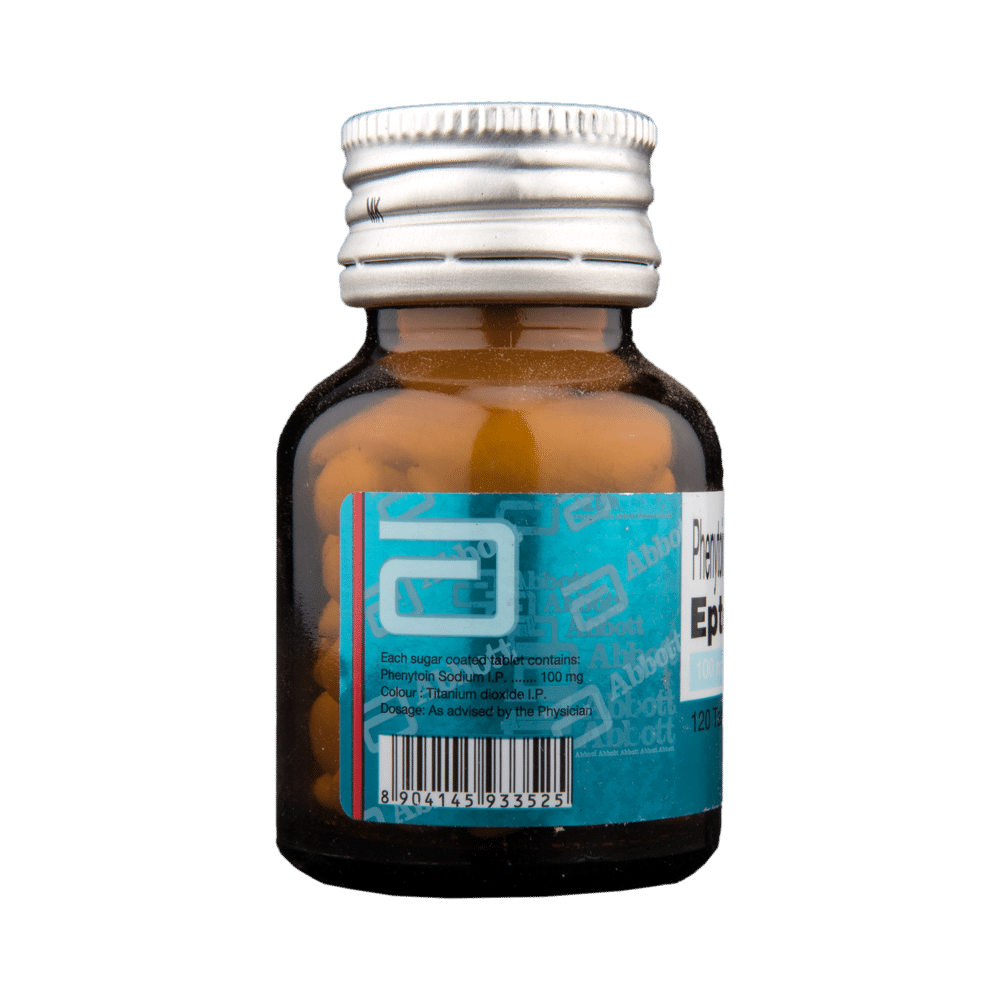
Epidium Tablet
Manufacturer
ICI Healthcare Pvt Ltd
Salt Composition
Phenytoin (100mg)
Key Information
Short Description
Epidium Tablet is a prescription medicine used to treat and prevent epilepsy (seizures) by decreasing the abnormal and excessive activity of the nerve cells in the brain.
Dosage Form
Tablet
Introduction
Epidium Tablet is an antiepileptic medication used to treat and prevent epilepsy (seizures). It controls seizures by decreasing the abnormal and excessive activity of the nerve cells in the brain.
Directions for Use
Take this medicine in the dose and duration as advised by your doctor. Swallow it as a whole. Do not chew, crush or break it. Epidium Tablet may be taken with or without food but it is better to take it at a fixed time.
Safety Information
Side Effects
No common side effects listed.
Alcohol Warning
It is unsafe to consume alcohol with Epidium Tablet.
Breastfeeding Warning
Epidium Tablet is probably unsafe to use during breastfeeding. Limited human data suggests that the drug may pass into the breastmilk and harm the baby.
Pregnancy Warning
Epidium Tablet is unsafe to use during pregnancy as there is definite evidence of risk to the developing baby. However, the doctor may rarely prescribe it in some life-threatening situations if the benefits are more than the potential risks. Please consult your doctor.
Interacting Medicines
Aprepitant Disopyramide Nimesulide Nimodipine
How it works
Epidium Tablet is an antiepileptic medication. It controls seizures or fits by decreasing the abnormal and excessive activity of the nerve cells in the brain.
Quick Tips
Take your medication regularly as directed by your doctor as missing doses can trigger seizures. Do not change the brand of your medicine and make sure that you have sufficient amount of medicine present with you. Some healthy tips to prevent seizures: Practice yoga every day. Get enough sleep at nighttime. Limit the use of screen time such as mobile/laptop. Take your medication on time. It may cause dizziness and sleepiness. Do not drive or do anything that requires mental focus until you know how it affects you. It may increase blood sugar levels. Inform your doctor if you are taking any medicines to treat diabetes. It may cause swollen gum (gum hypertrophy) hence take care of oral or dental hygiene. Talk to your doctor if you notice sudden mood changes or develop suicidal thoughts. Do not stop taking the medication suddenly without talking to your doctor as it may increase the seizure frequency.
Related Medicines

Eptoin 100mg Tablet

Epsolin 100 Tablet

Phenyto S 100mg Tablet

Phenozed 100mg Tablet

Epitab 100mg Tablet

Eripin 100mg Tablet

Neutoin 100mg Tablet

Eptovac 100mg Tablet

Phenyfine 100mg Tablet

Pna 100mg Tablet
Frequently asked questions
How long does Epidium Tablet stay in your system?
Epidium Tablet typically remains detectable in the body for 5-6 days. However, individual variation may cause it to remain longer in some individuals, potentially up to 9-10 days.
What should I do if I stop taking Epidium Tablet?
Abrupt discontinuation of Epidium Tablet can result in a dangerous condition called status epilepticus. It is imperative not to discontinue the medication without consulting your doctor. If necessary, they may gradually reduce your dosage before stopping it entirely.
What are the symptoms of an overdose of Epidium Tablet? Can I die from an overdose?
Overdose of Epidium Tablet can cause adverse effects including rapid and jerky eye movements (nystagmus), slurred speech, unsteadiness, tremors, muscle stiffness or weakness, nausea, vomiting, lightheadedness, fainting, blurred vision, slow and shallow breathing, and even coma. This overdose may lead to significant hypotension and respiratory distress, increasing the risk of death.
Who should avoid taking Epidium Tablet?
It is not recommended to use Epidium Tablet if you have liver disease, especially if you have a history of liver complications related to this medication. Additionally, patients taking Delavirdine (a medication used in the treatment of HIV infection) should not take Epidium Tablet as it can affect the effectiveness of both medications.
Can I take Epidium Tablet with ibuprofen?
Epidium Tablet can be taken concurrently with ibuprofen. No known drug-drug interactions have been reported between these two medicines, but you should consult your doctor before combining them to ensure the safety and effectiveness of your treatment.
What are the effects of Epidium Tablet on children?
Common side effects observed in children taking Epidium Tablet include jerky eye movements (nystagmus) and gum overgrowth. Some children may experience difficulties with thinking or behavior, mood changes, slow or clumsy movements, or a loss of energy. High dose Epidium Tablet can cause problems like unsteadiness in the feet and hands, sleepiness, and vomiting.
Does Epidium Tablet cause weight gain?
No definitive evidence suggests that Epidium Tablet directly causes weight gain. However, prolonged use at higher doses can sometimes lead to unintentional weight loss. It is important to discuss any unusual weight changes with your doctor.
Does Epidium Tablet make you sleepy?
Epidium Tablet may induce drowsiness (somnolence) and sleepiness. If you experience excessive sleepiness after taking the medication, particularly during the initial weeks of treatment or following a dose increase, it is crucial to seek guidance from your doctor. Driving or operating machinery might be restricted until your ability is evaluated.
Does Epidium Tablet affect birth control?
Epidium Tablet can negatively impact the effectiveness of oral contraceptives (birth control pills). It may decrease their efficacy, potentially leading to inconsistent contraceptive effects. Consult with your doctor if you require a combination of these medications to discuss alternative contraception methods and ensure proper protection.


